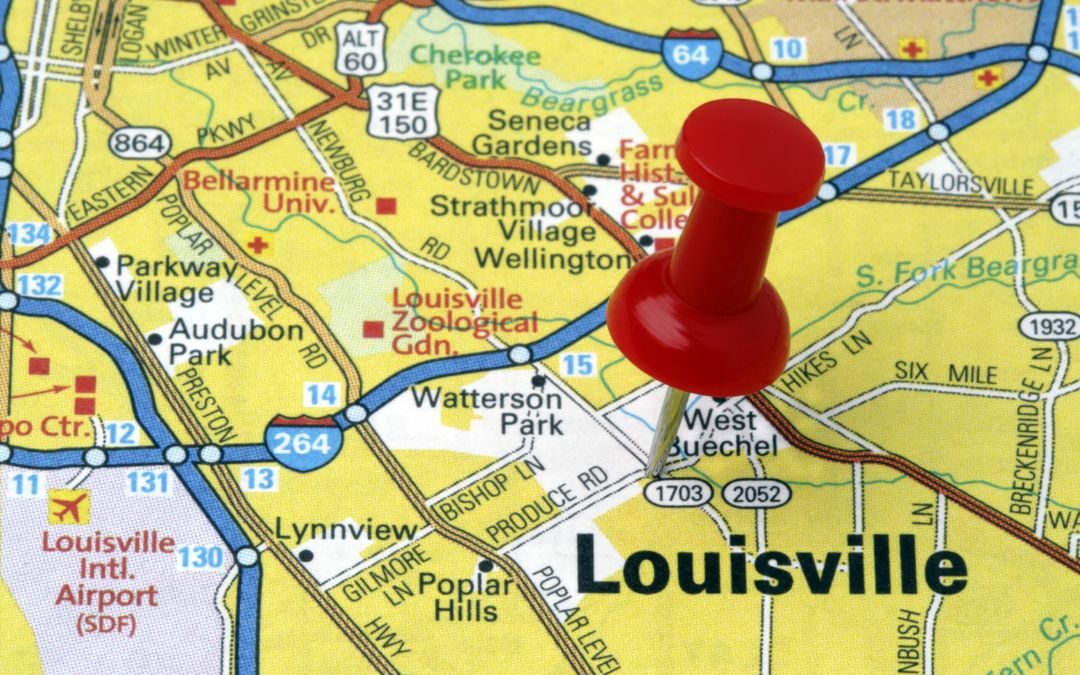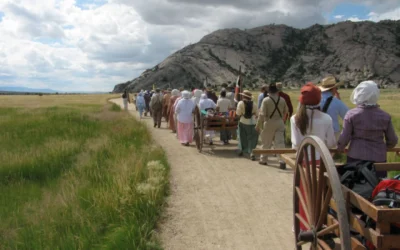What Is a Brick Wall?
Often when members get together, we discover better ways to research or break through brick walls. In January 2021, the society sponsored a session where members had submitted some of their brick walls in hopes of brainstorming some tips from other experts. In this session, our president, Christopher Padgett, walked through the cases.
In this clip from the Brick Wall Brainstorm session, he defines a brick wall and offers some quick tips to members researching in Kentucky.
Video Transcript
A brick wall is a metaphor for a challenging obstacle, a point or a level that is very difficult to go past or an immovable block or obstruction. The key is finding a door to pass beyond your brick wall.
Tip 1: Work with the Family History Library Consultants
Some of you may or may not be aware of this, but there are free research consultations available through the family history library in Salt Lake City. If you go onto the Family Search Wiki, you can book these consultants.
They are free. I’ve done a few of these already.
Each one has given me tons of insights. You will speak with an expert at the Family History Library for about 20 minutes. But that’s one really great resource. Just want to make sure that folks are aware of that. You can find out more information about it at the Family Search Wiki.
Tip 2: Work with a Professional Researcher
On the KYGS website is a directory of genealogical researchers. These are not researchers that we endorse, but they are researchers that are members that do research in Kentucky. It is always an option is to hire a researcher.
Tip 3: Connect with Cousins
Perhaps my favorite brick wall tip is to connect with your cousins. When you think about cousins, you might just think of your first cousins, but for your complicated brick walls, you cannot go far enough out into your tree.
I have solved so many brick walls with help from second cousins, third cousins, fourth cousins and beyond. Just recently broke through a brick wall in Germany I had with a sixth cousin who was able to work with me.
But it’s amazing when people pass away and you have a great, great, great, great, great grandparent a lot of that family ephemera, it doesn’t get thrown out. It gets dispersed amongst the living descendants and after three or four generations, you can often have little bits and pieces spread out over a large area.
There’s real value in reaching out and striking up a conversation with someone that you’ve never met before, who might be your second, third or fourth cousin.
It’s not as easy as sort of point and click genealogical research on Family Search or Ancestry, but you would be amazed at what you can find if you actually make a point to reach out to cousins that you don’t know, you don’t have a relationship with and just see what they may know about your ancestors.
Sometimes they have the insights that you need to overcome your brick wall.
Tip 4: Keep Improving Your Research Skillset
On our website, we have on-demand learning, which is a series of video that you can watch on demand. That are just really a valuable with lots of insights about doing genealogical research.
So whether or not you are a brand new researcher or you’ve been researching for 30 years, there are some really great videos out there on the Kentucky Genealogical Society website for our members under the on-demand learning module.
Tip 5: Befriend Librarians and Archivists
The librarians and the archivist, particularly in Kentucky. You probably want to do this is over the telephone or send them a handwritten letter. You’d be amazed at the response you get to a handwritten letter or telephone call versus just an email. A lot of these places get a lot of emails and given the pandemic, you’ve got a lot of these folks that are working still from home or remotely.
On the telephone is probably going to be one of your best research tips. Or if you can write down a letter or type up a letter, sign your name to it, put a stamp, send it in the mail, send a self-addressed stamped envelope back. You’d be amazed at sometimes the response you’d get.
Tip 6: Be Kind, But Tenacious
Most importantly, practice kindness and tenacity.
In Kentucky, people will help you a lot. But it’s really important that you understand that they got a lot going on, so you’ve gotta be kind and you also have to kind of keep at it. And sometimes you got to write an archive multiple times over multiple years, staff will come and go.
Sometimes if you don’t get the answer, you’re looking for one year, you wait a year to send the same letter and you’ll be amazed. Someone else maybe find something completely different or they respond to you, but just keep at it and you know, just practice as much kindness as you can.





